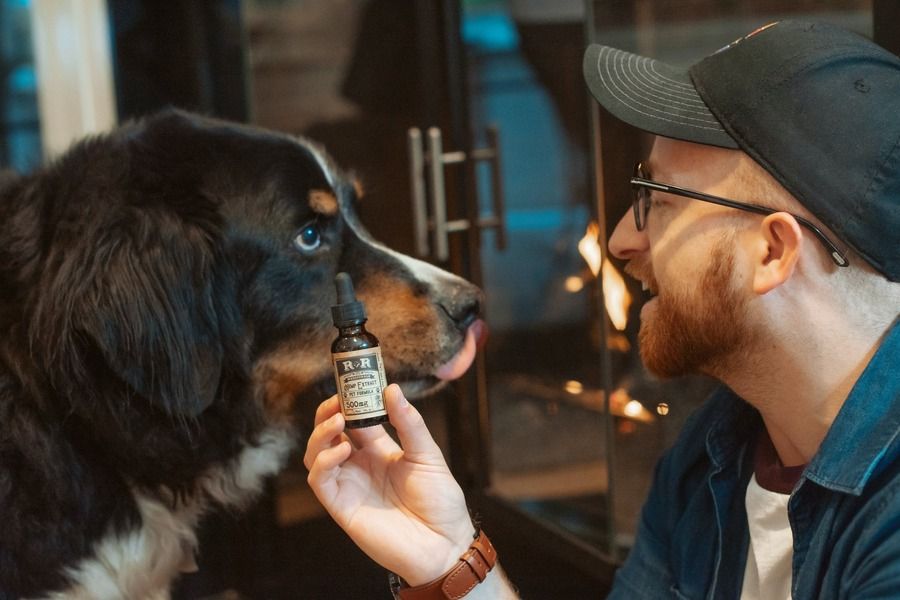In recent years, the popularity of CBD (cannabidiol) has surged, not just for humans but for pets as well. As dog owners increasingly seek alternative therapies for their furry companions, understanding CBD for dogs has become essential.
This article will explore the potential benefits of CBD for dogs, as well as important considerations to keep in mind.
What is CBD?
CBD is a compound derived from the cannabis plant. Unlike THC (tetrahydrocannabinol), CBD does not have psychoactive effects, meaning it won’t make your dog high. Instead, it interacts with the endocannabinoid system (ECS) found in all mammals, including dogs.
The ECS plays a crucial role in regulating various bodily functions, such as mood, pain response, and immune function. By influencing this system, CBD may help address several health issues in dogs.
Potential Benefits of CBD for Dogs
Pain Relief
Many pet owners report that CBD can help alleviate pain, particularly chronic pain associated with conditions like arthritis. CBD has anti-inflammatory properties, which can be beneficial for dogs suffering from joint pain or injury.
Anxiety and Stress Reduction
Dogs, like humans, can experience anxiety. Whether it’s due to separation anxiety, loud noises, or changes in their environment, CBD may help calm anxious dogs. Several studies suggest that CBD can reduce stress levels and promote relaxation.
Seizure Management
There is growing evidence that CBD may be effective in managing seizures in dogs, particularly in those with epilepsy. Some studies have shown a significant reduction in seizure frequency when CBD is included in treatment plans.
Improved Appetite and Nausea Control
For dogs undergoing treatments that may cause nausea or a loss of appetite, such as chemotherapy, CBD may help stimulate appetite and reduce feelings of nausea. This can be particularly important for dogs with serious health conditions.
Skin Health
Topical CBD products can also benefit dogs with skin conditions. The anti-inflammatory and soothing properties of CBD may help alleviate itching and irritation caused by allergies or other skin issues.
Considerations When Using CBD for Dogs
While the potential benefits of CBD for dogs are promising, several factors should be considered before introducing it to your pet’s routine:
Quality and Source
Not all CBD products are created equal. It’s crucial to choose high-quality, pet-specific CBD products from reputable sources. Look for products that provide third-party lab testing results, ensuring they contain the claimed amount of CBD and are free from harmful substances.
Dosage
Determining the correct dosage of CBD for your dog can be challenging. Factors such as your dog’s weight, age, and health condition will influence the appropriate dosage. It’s always best to start with a low dose and gradually increase it while monitoring your dog’s response.
Consult Your Veterinarian
Before starting any new supplement or treatment, consult your veterinarian. They can provide guidance based on your dog’s health history and specific needs. This is especially important if your dog is already on medications, as CBD can interact with certain drugs.
Legal Considerations
While CBD derived from hemp is legal in many areas, regulations can vary by state or country. Make sure to familiarize yourself with the legal status of CBD in your area before purchasing or using it for your dog.
Potential Side Effects
While CBD is generally considered safe for dogs, some may experience side effects such as drowsiness, dry mouth, or gastrointestinal upset. Monitoring your dog after administering CBD can help you identify any adverse reactions.
Wrapping Up
CBD for dogs is a topic of growing interest among pet owners looking for alternative treatments for various health issues. With potential benefits such as pain relief, anxiety reduction, and improved appetite, CBD may provide significant help for many dogs. However, it is essential to consider factors like product quality, dosage, and veterinary guidance before incorporating CBD into your dog’s wellness routine. By staying informed and cautious, you can make the best decisions for your furry friend’s health and happiness.










